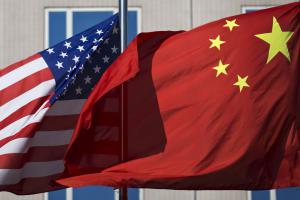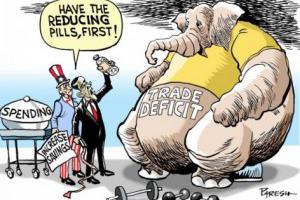America’s Trade Deficit Is Not Afraid of Donald Trump
Project Syndicate
 The manufacturing industry has been hit hard since China's acceptance in the World Trade Organization. The industry includes imports of computer and electronic parts and accounted for 56 percent of the $240.1 billion increase in the US trade deficit with China. An estimated 1,249,100 jobs were eliminated in the electronic industry.
The manufacturing industry has been hit hard since China's acceptance in the World Trade Organization. The industry includes imports of computer and electronic parts and accounted for 56 percent of the $240.1 billion increase in the US trade deficit with China. An estimated 1,249,100 jobs were eliminated in the electronic industry.
 If high unemployment is one of the obstacles to more equitable growth, then the question is: how do we achieve full employment? There are four main ways. Each route faces substantial political opposition, both because of powerful interests that would be hurt by paying higher wages and because of popular prejudices that are persistently promoted in the media.
If high unemployment is one of the obstacles to more equitable growth, then the question is: how do we achieve full employment? There are four main ways. Each route faces substantial political opposition, both because of powerful interests that would be hurt by paying higher wages and because of popular prejudices that are persistently promoted in the media.
 Output growth at the nation’s factories has [...] been weak since 2000. And though automation undoubtedly has displaced some workers in manufacturing, research suggests that persistent trade deficits and America’s decline as a location for production have accounted for much of the sector’s job loss. Boosting exports or reducing imports enough to bring trade into balance would generate 4.2 million jobs directly and another 2.1 million jobs indirectly.
Output growth at the nation’s factories has [...] been weak since 2000. And though automation undoubtedly has displaced some workers in manufacturing, research suggests that persistent trade deficits and America’s decline as a location for production have accounted for much of the sector’s job loss. Boosting exports or reducing imports enough to bring trade into balance would generate 4.2 million jobs directly and another 2.1 million jobs indirectly.
Spread the word